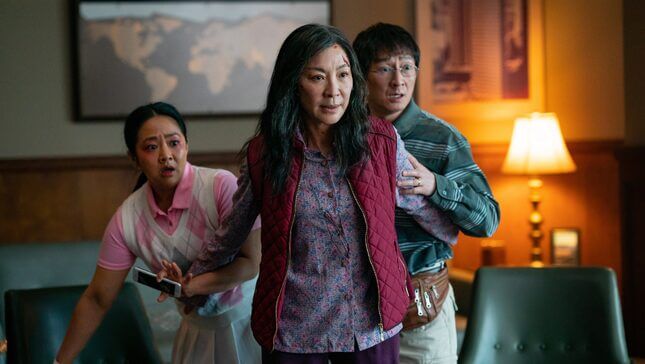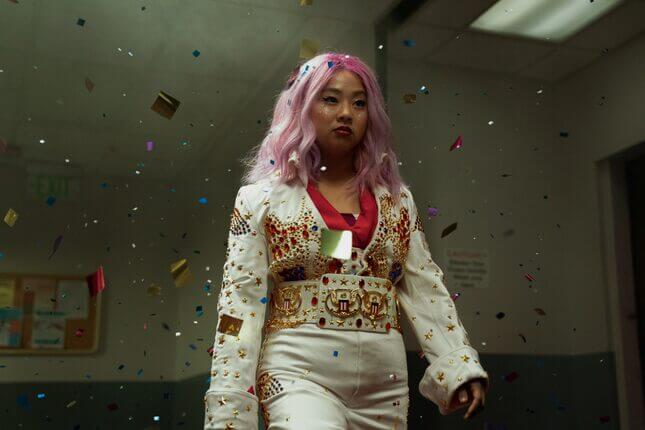In ‘Everything Everywhere All at Once,’ Intergenerational Trauma Is a Black Hole
Asian families, and Asian women in particular, struggle to communicate our pain, leaving many of us to carry it alone. Talking to our moms might be a solution.
EntertainmentMovies

If the universe were collapsing in on itself, and reality was fraying at the seams, the one thing I could count on is that my mom would find a way to make it about my tattoos.
It’s a disdain she shares with many Asian immigrant parents, and certainly Michelle Yeoh’s Evelyn Wang in the new, absurdist film Everything Everywhere All at Once. Directed by Daniel Kwan and Daniel Scheinert, the movie is a mind and genre-bending sci-fi adventure that posits there are infinite versions of us across infinite universes, and each decision we make ripples out into an infinite number of possibilities.
The movie’s grand thesis seems to be that life and humanity are both meaningless and meaningful, simultaneously. Meaningless, because even the most seemingly intense, significant moments of our lives are just tiny particles in a grand multiverse; meaningful, because every inane, seemingly insignificant choice we make can impact the trajectory of our lives across the multiverse. Everything Everywhere is a truly whacky epic rife with sausage-fingered lesbian lovers, a raccoon chef a la Ratatouille, and desk trophies made out of butt plugs. And yet it’s also, somehow, a story about the illusion of agency and reality itself.
Additionally, it’s very much a story about family. We spend the film following Evelyn and her family, as she struggles to connect with her gentle, romantic husband Waymond. The couple runs a struggling laundromat, and they share a daughter, Joy, whose girlfriend and queer identity are difficult for Evelyn to accept. Through flashbacks, we learn that before Evelyn and Waymond even had Joy, Evelyn and her father Gong-Gong had become estranged as a result of her running away with Waymond without his approval.
-

-

-

-

-

-

-

-

-

-

-

-

-

-

-

-

-

-

-

-

-

-

-

-

-

-

-

-

-

-

-

-

-

-

-

-

-

-

-

-









































